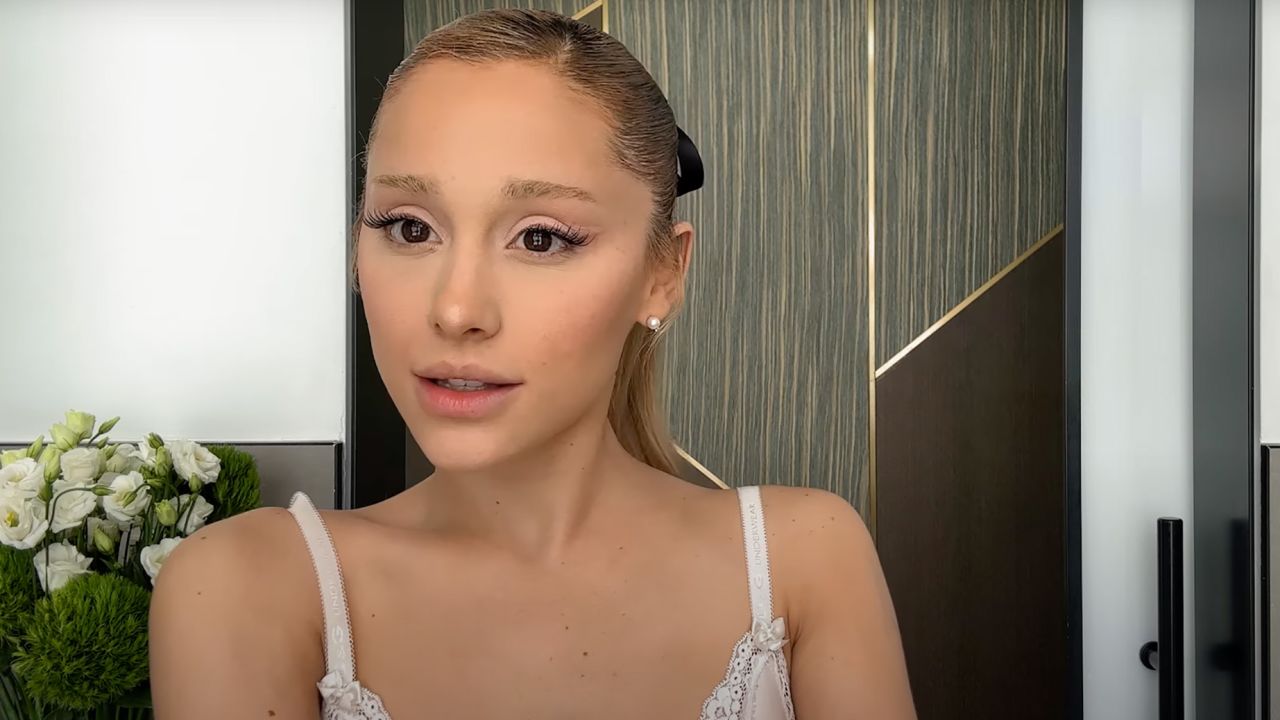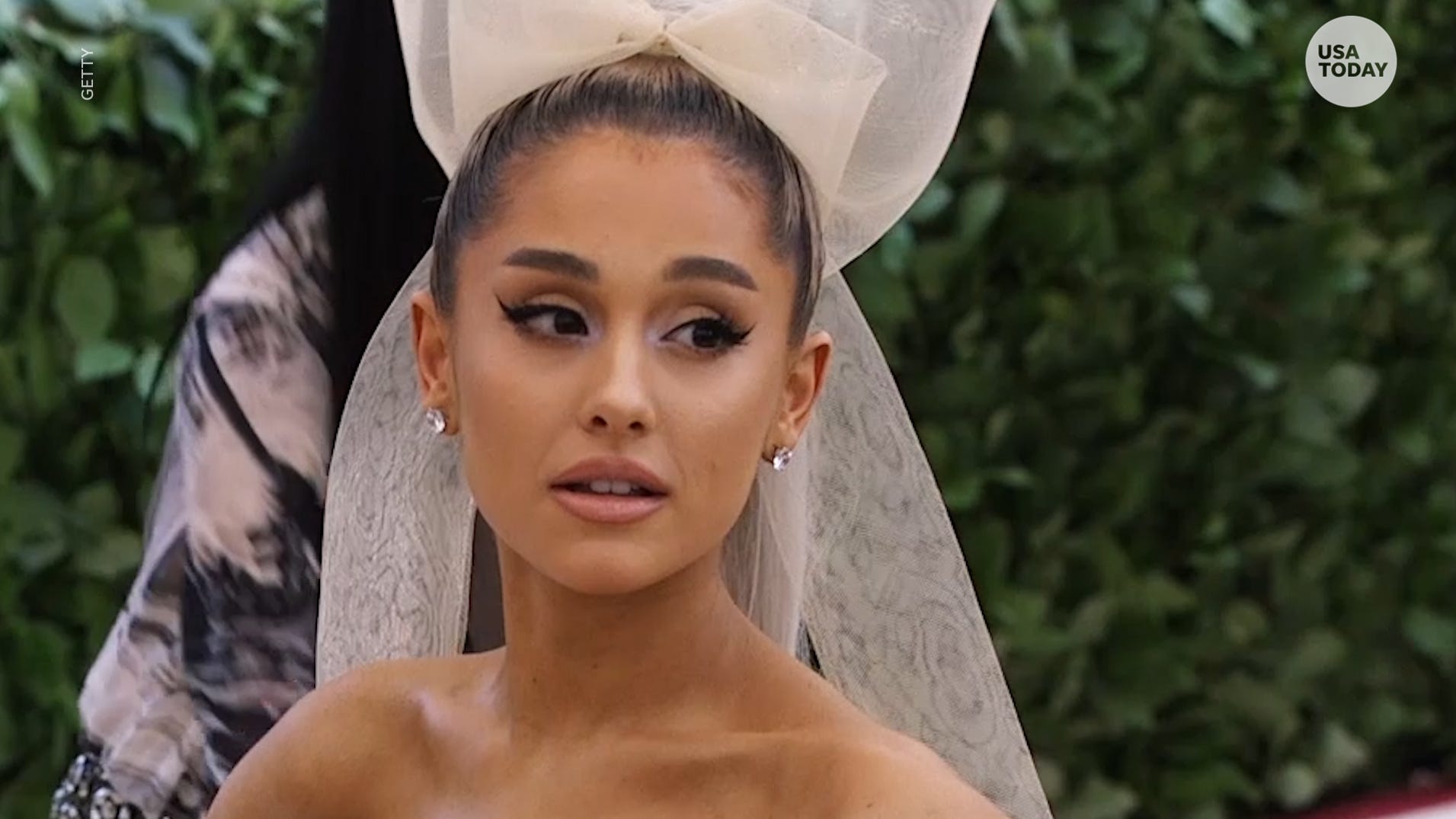Has Ariana Grande said the N-word? This question has sparked significant discussions and debates among fans, critics, and the media. The controversy surrounding her use of language in certain contexts has raised important questions about cultural sensitivity, representation, and the responsibilities of public figures. As one of the most prominent pop stars globally, Ariana Grande's actions and words are often scrutinized under a microscope, making it crucial to explore this topic with nuance and depth.
The issue gained attention when some of her past interviews and performances were revisited by fans and analysts. Critics argue that her occasional use of colloquial language, often borrowed from Black culture, raises concerns about cultural appropriation. On the other hand, supporters highlight her efforts to promote inclusivity and diversity through her music and public persona. This debate underscores the broader conversation about language, identity, and privilege in today's entertainment industry.
In this article, we will delve into the details of the controversy, examining the context in which the allegations arose and exploring both sides of the argument. By analyzing credible sources and expert opinions, we aim to provide a balanced perspective on whether Ariana Grande has indeed used the N-word and what implications this may have for her career and public image. Stay with us as we navigate this complex issue step by step.
Read also:Mastering The Art Of Sourdough Why Sourdough Sticky Is Key To Success
Who Is Ariana Grande?
Before diving into the controversy, let's take a moment to understand who Ariana Grande is. Born on June 26, 1993, in Boca Raton, Florida, Ariana Grande-Butera is an American singer, songwriter, and actress. She rose to fame with her role in the Nickelodeon television series "Victorious" and its spinoff "Sam & Cat." However, it was her transition to the music industry that cemented her status as a global superstar.
| Full Name | Ariana Grande-Butera |
|---|---|
| Birthdate | June 26, 1993 |
| Birthplace | Boca Raton, Florida, USA |
| Occupation | Singer, Songwriter, Actress |
| Genre | Pop, R&B, Electronic |
What Are Some Key Achievements in Her Career?
Ariana Grande has achieved numerous milestones throughout her career. She has released several critically acclaimed albums, including "Yours Truly," "My Everything," and "Thank U, Next," which have topped charts worldwide. Beyond music, she has ventured into acting, voice-over work, and even fragrance production. Her influence extends beyond entertainment, as she actively advocates for causes such as LGBTQ+ rights and mental health awareness.
Why Is Cultural Sensitivity Important in Ariana's Work?
As a prominent figure in the entertainment industry, Ariana Grande's choices regarding language and representation carry significant weight. Has Ariana Grande said the N-word in any context? If so, how does this align with her image as a supporter of inclusivity? These questions highlight the importance of cultural sensitivity, particularly for artists who draw inspiration from diverse communities. Fans expect their idols to be mindful of the impact their words and actions have on society.
Has Ariana Grande Said the N-Word in Interviews or Performances?
The controversy surrounding Ariana Grande's alleged use of the N-word stems from specific instances where her choice of language was questioned. While she has not explicitly admitted to using the term in interviews, some fans and critics point to her use of AAVE (African American Vernacular English) in certain settings. This has led to debates about whether her adoption of Black cultural elements constitutes appropriation or admiration.
How Does Language Shape Identity and Representation?
Language plays a crucial role in shaping identity and representation. In the context of "has Ariana Grande said the N-word," it is essential to examine the historical and cultural significance of the term. The N-word carries deep-rooted pain and trauma for many Black individuals, making its use by non-Black people highly controversial. Critics argue that celebrities like Ariana Grande should be aware of these sensitivities and exercise caution in their public discourse.
Is It Possible for Artists to Appreciate Without Appropriating?
One of the central questions in this debate is whether artists can appreciate cultural elements without engaging in appropriation. Has Ariana Grande said the N-word unintentionally, or is her use of AAVE part of a broader trend among non-Black celebrities? Experts suggest that intentionality and acknowledgment are key. Artists who wish to incorporate elements from other cultures must do so respectfully, acknowledging the origins and significance of those elements.
Read also:Inside Boxer Andre Wards Net Worth A Deep Dive Into His Career And Legacy
What Do Fans and Critics Say About the Controversy?
The reaction to Ariana Grande's alleged use of the N-word has been mixed. Some fans defend her, arguing that her intentions are pure and her actions align with her commitment to inclusivity. Others criticize her for not being more mindful of the impact her words may have. This divide reflects broader societal tensions regarding race, privilege, and representation in the media.
How Can We Foster Constructive Dialogue Around This Issue?
Fostering constructive dialogue about "has Ariana Grande said the N-word" requires empathy and understanding. It is crucial to listen to diverse perspectives and engage in open conversations about the implications of language choices. By doing so, we can create a more inclusive environment where all voices are heard and respected.
What Lessons Can We Learn From This Controversy?
This controversy offers valuable lessons about the importance of cultural sensitivity and accountability. Artists, especially those with significant influence, must be aware of the impact their words and actions have on society. Has Ariana Grande said the N-word out of ignorance or as part of a larger cultural trend? Regardless of the answer, this incident serves as a reminder of the need for ongoing education and reflection.
Where Does the Entertainment Industry Stand on Cultural Appropriation?
The entertainment industry has increasingly grappled with issues of cultural appropriation in recent years. As more voices demand accountability and representation, artists are held to higher standards regarding their use of language and cultural elements. Has Ariana Grande said the N-word as part of a broader pattern within the industry, or is this an isolated incident? Exploring these dynamics helps us understand the evolving landscape of cultural sensitivity in entertainment.
What Steps Can Artists Take to Avoid Similar Controversies?
Artists can avoid similar controversies by educating themselves about cultural contexts and engaging with communities they wish to represent. Building authentic connections and seeking input from those with lived experiences can prevent misunderstandings and promote mutual respect. For Ariana Grande and others in her position, this means being intentional about the language they use and the messages they convey.
How Can Fans Support Artists While Holding Them Accountable?
Fans play a critical role in shaping the behavior of their favorite artists. By voicing concerns and demanding accountability, fans can encourage positive change. When asking, "Has Ariana Grande said the N-word," fans can also reflect on how they contribute to conversations about cultural sensitivity and representation. Supporting artists while holding them accountable creates a balanced approach that benefits everyone involved.
Conclusion: Moving Forward with Awareness and Respect
In conclusion, the controversy surrounding "has Ariana Grande said the N-word" highlights important issues about cultural sensitivity, representation, and accountability in the entertainment industry. While the specifics of this case may remain debated, it serves as a reminder of the power of language and the responsibility of public figures to use it wisely. By fostering open dialogue and promoting education, we can create a more inclusive and respectful environment for all.
Table of Contents
- Who Is Ariana Grande?
- What Are Some Key Achievements in Her Career?
- Why Is Cultural Sensitivity Important in Ariana's Work?
- Has Ariana Grande Said the N-Word in Interviews or Performances?
- How Does Language Shape Identity and Representation?
- Is It Possible for Artists to Appreciate Without Appropriating?
- What Do Fans and Critics Say About the Controversy?
- How Can We Foster Constructive Dialogue Around This Issue?
- What Lessons Can We Learn From This Controversy?
- Where Does the Entertainment Industry Stand on Cultural Appropriation?


